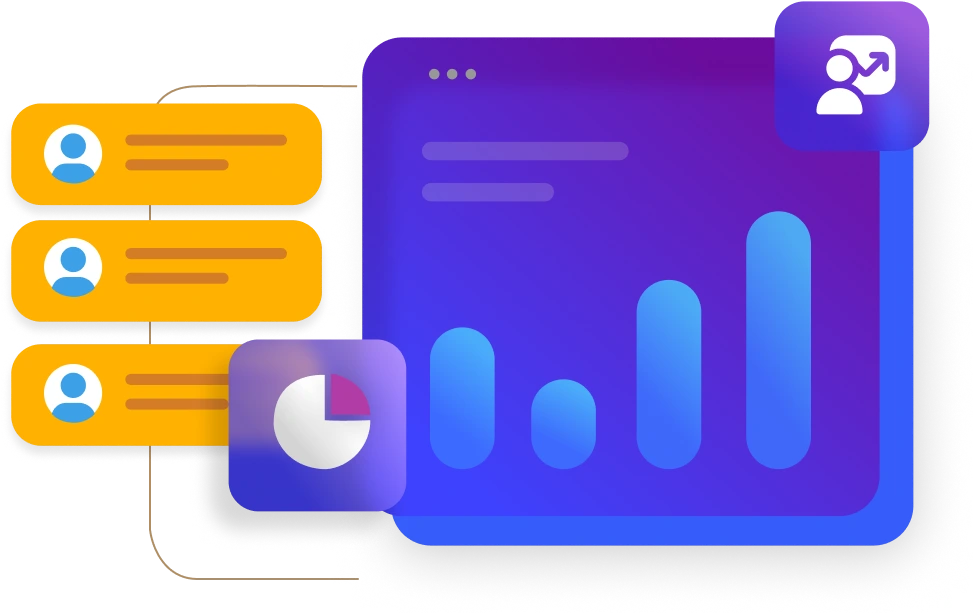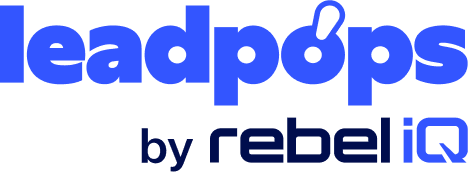Six Lessons from Experienced Search Engine Optimizers

We could tell you all about SEO until we’re blue in the face.
But why take our word for it?
In seeking effective long-term strategies for your SEO, it helps to listen to the people who have demonstrated an innate ability to manage their own SEO needs.
Sometimes, that comes from smaller, more “local” SEO types.
And other times, it comes from marketing gurus.
But no matter what the lessons are, there’s always more credibility when they ring true to your experience.
See Your Potential ROI with leadpops
See what's possible. Fix it fast.
With that in mind, let’s look at six lessons from experienced SEO professionals—and what these lessons can do for you:
Lesson #1: Focus on the SEO work that will stand the test of time.
Quote: “Good SEO work only gets better over time. It’s only search engine tricks that need to keep changing when the ranking algorithms change.”
-Jill Whalen
Given the nature of SEO, it’s hard to see how what you optimize today will stand the test of time tomorrow.
After all, aren’t search engines always changing? Updating their algorithms?
Book My FREE
Growth Strategy
Session
See what's possible. Fix it fast.

Aren’t the popular search engine trends always in motion?
Sure. But that doesn’t mean that you should ignore long-term work.
That includes dedication to putting your important keywords upfront.
That means avoiding keyword stuffing.
That means having clear, scannable content with clean code.
These things are just good “SEO hygiene”—and they’ll make your experience better even if your position in the search engines doesn’t improve overnight.
See Your Potential ROI with leadpops
See what's possible. Fix it fast.
Lesson #2: SEO is a Social Game, Too
Quote: “Google only loves you when everyone else loves you first.”
-Wendy Piersall
In optimizing your site for robots, changing your code, and doing it all from a computer monitor, you may be tempted to forget that SEO is all about one thing:
Humans.
Humans are the ones entering key phrases into Google with questions and queries.
Book My FREE
Growth Strategy
Session
See what's possible. Fix it fast.

You’re the one expected to solve those questions.
The principles of SEO haven’t changed over the years. It’s still important to search engines that your content answers the questions that their search users pose.
That means that if you want to have effective SEO, you should always start with the end-user in mind.
Who’s going to search for this?
What are they trying to find?
What problem do they have that’s causing this search—and how can you change your content to help solve it?
See Your Potential ROI with leadpops
See what's possible. Fix it fast.
This is another reminder to put yourself in their shoes.
Type in the exact search query that you want to rank for. Poke around. Look at the top-performing content. What types of answers aren’t they giving people that you can?
Lesson #3: Quality, Not Quantity
Quote: “Focus on producing quality content as better content is outweighing more content.”
-Rand Fishkin
Is it better to have quality or quantity? Ask most SEO experts and they’ll tell you, with conviction: quality is better.
Book My FREE
Growth Strategy
Session
See what's possible. Fix it fast.

A high-quality page is going to answer more user questions than others. It’s going to draw in more links. It’s going to get shares on social media. It’s going to give you an avenue for driving traffic. It’s going to show up with long-tail keywords that you never imagined.
But a poor-performing page doesn’t help as much as you think, even if you scale it to new heights. Search engines are in the business of delivering the highest-quality links to their users. And they’re not happy about it if that’s not what you’re doing.
Creating quality content will also help you build more “evergreen” content.
Sure, short-term tips are fine.
But it’s the higher-quality content that tends to last. Those are the guides that people continually turn back to—and therefore link to—over time.
Lesson #4: Focus on the Right People
See Your Potential ROI with leadpops
See what's possible. Fix it fast.
Quote: “Nowadays, it is not about getting traffic but the targeted traffic.”
-Adam Audette
It’s safe to say the Internet is pretty saturated at this point.
Type in a popular keyword and you’ll find hundreds—if not thousands—of companies jockeying for position.
What’s a brand-new search engine optimizer to do?
It starts with getting back to that focus:
Book My FREE
Growth Strategy
Session
See what's possible. Fix it fast.

People.
By focusing on what people are looking for, you can whittle down your list of target keywords until you arrive at something that’s less competitive—but still great for your business.
For example, “mortgage loans” is a powerful keyword.
People are paying a lot of money just to show up there.
But if you start whittling down your targeted keywords to specific demographics—say, first-time home buyers or a specific location—then you’ve suddenly changed the playing field.
These might still be popular key phrases. But the more specificity you add, the more you can search for key phrases that your target market wants to see.
See Your Potential ROI with leadpops
See what's possible. Fix it fast.
You can also try combining key phrases to see if there are ways in which you can reach new audiences.
Take our example in this section: you might combine the two suggestions here to come up with a target market of first-time home buyers in a specific location.
This whittles down your list even more.
You don’t want to get so far off the beaten path that no one ends up searching for your high-quality content.
You just want to find a launching pad—a reasonable goal for your early content.
Over time, as your site builds in credibility with the search engines, you can seek out longer-term trends and expand your competitive ambition.
Book My FREE
Growth Strategy
Session
See what's possible. Fix it fast.

Lesson #5: Don’t Forget the Technical Side
Quote: “No business can stand out without a strong backbone and the backbone is technical SEO.”
-Neil Patel
For all that we’ve said about writing for humans, keep this in mind: you shouldn’t ignore the technical aspects of SEO.
You don’t want to have an optimized page one day and then turn around and discover that an algorithm change has thrown it off the front pages of Google the next.
Instead, keep up on your technical side through simplicity, ongoing learning, and staying up with the latest trends.
See Your Potential ROI with leadpops
See what's possible. Fix it fast.
Every once in a while, you may find that you’ll encounter someone willing to offer you a free “SEO audit” to help you see where your page lands.
This is a good idea. Take advantage of offers like these—if nothing, you’ll get a new perspective for how your technical SEO is progressing over the years.
Lesson #6: Cast a Wide Net
Quote: “People will come to your site because you have good compelling content. You need to hit it from all angles: blog posts, articles, graph data, infographics, interactive content – even short pictures when you tweet.”
-Chris Bennett
What works best for your audience?
Book My FREE
Growth Strategy
Session
See what's possible. Fix it fast.

You won’t know until you cast a wide net.
Be willing to experiment. Create valuable content across different mediums. Put in the time and effort it takes to discover how people would most enjoy your content, and then deliver that content to them in that medium.
Visual content can be important for SEO because it reinforces the quality of your page.
People won’t link to something that isn’t worth clicking.
Be worth clicking—no matter what the medium.
Want a shortcut to making the compelling content that gets results? Sign up for a free trial of leadPops today.
See Your Potential ROI with leadpops
See what's possible. Fix it fast.



